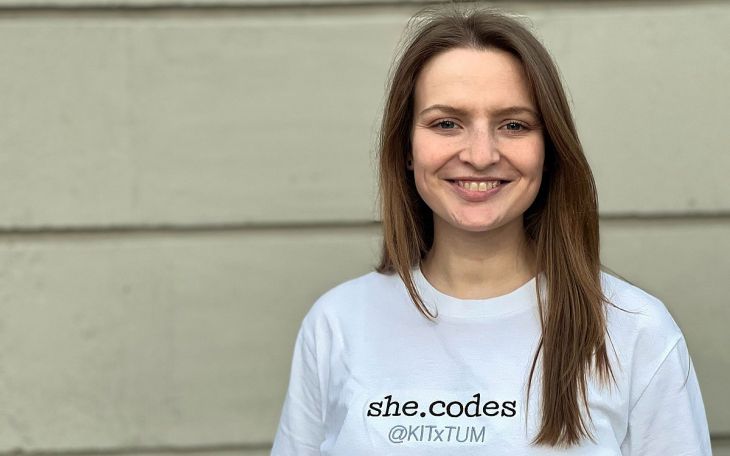Why do interests develop the way they do in puberty when they are still so similar in childhood?
First, conventional stereotypes are still communicated to children and adolescents today. Programmers are usually male. This stereotype is often spread through books and movies, too. And second, girls are often encouraged differently in our society. There are studies showing that teachers unconsciously suggest very different courses of study for girls and boys. Girls are less likely to be guided towards technical careers. With she.codes, we’re creating an alternative. And a safe space where there are only women and where girls can try things out.
What happens in your workshops?
All of them are suitable for girls who have never tried coding before. That means that no previous knowledge is needed. We offer online and onsite courses. In the online courses, we teach the girls the Python programming language through fun and games. They start by learning to code a short chat program that they can use to ask the computer questions. Or we teach them how to code a rock-scissors-paper game. Onsite we write programs with the Calliope Mini. That is a single-board computer with various sensors. The girls learn how to program a small piano or develop games. That’s a lot of fun because they can tinker with the Calliope Mini as well as writing code.
How steep is the learning curve?
By the end of our four-month code-togetHER program, the participants know how to write a more complicated game, for example – including the integration of a graphic interface. We have seen how this motivates the participants. They can show the game they have coded to their parents, siblings, and friends and let them try it out for themselves.
You’ve been with she.codes in Munich right from the start. What experiences from the workshops have stayed with you?
It’s nice to watch the girls having fun and learning things. I especially love seeing groups working by themselves and helping each other. When one participant has a problem and shares her screen and shows the others where she is stuck. Or when a pupil in a classroom session isn’t quite sure why something isn’t working the way she hoped it would. When the group then thinks about where the problem could be, makes suggestions and finally arrives at a solution – that’s brilliant. It’s also great when participants keep coming back to our workshops and recommend us to their friends or sisters.









